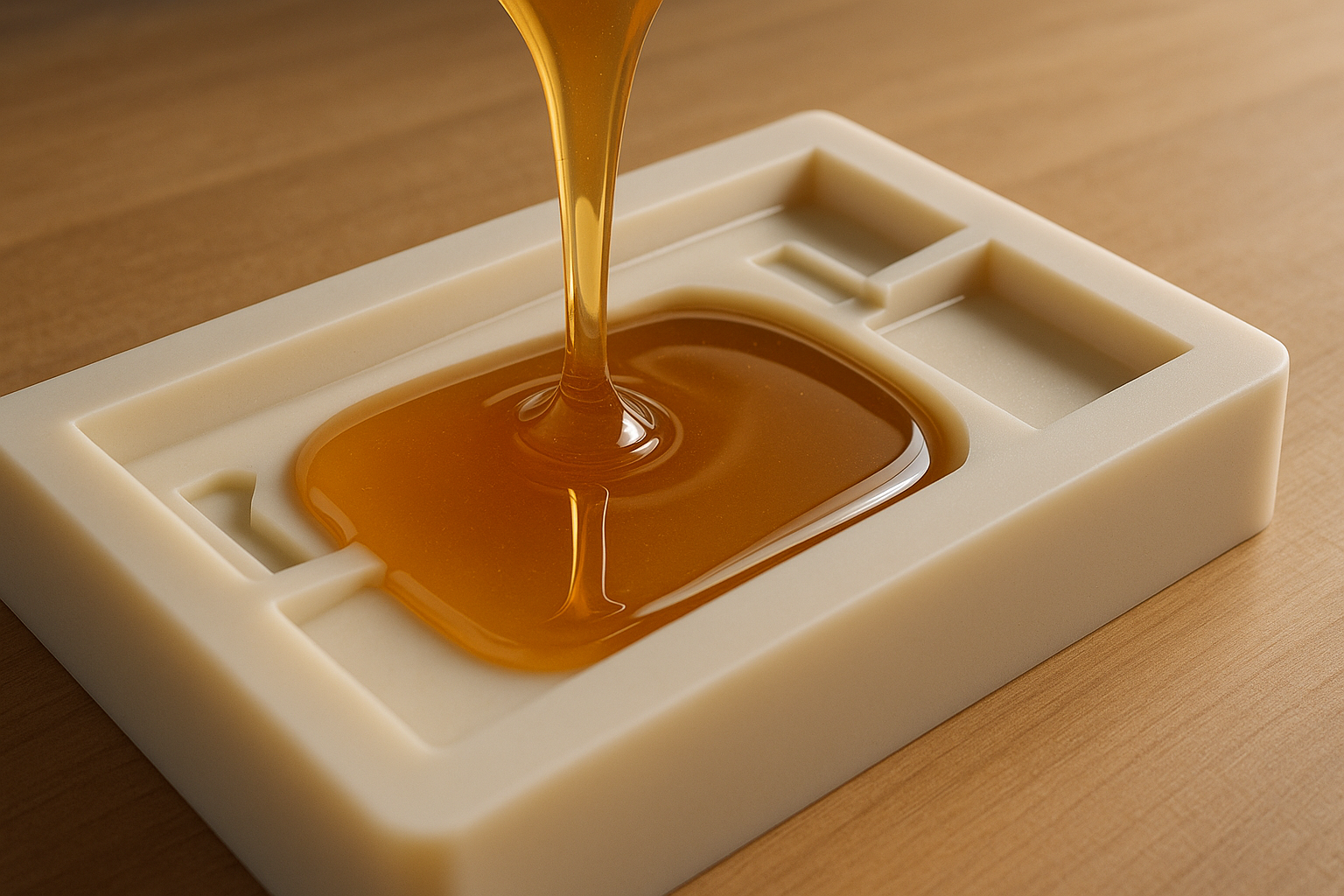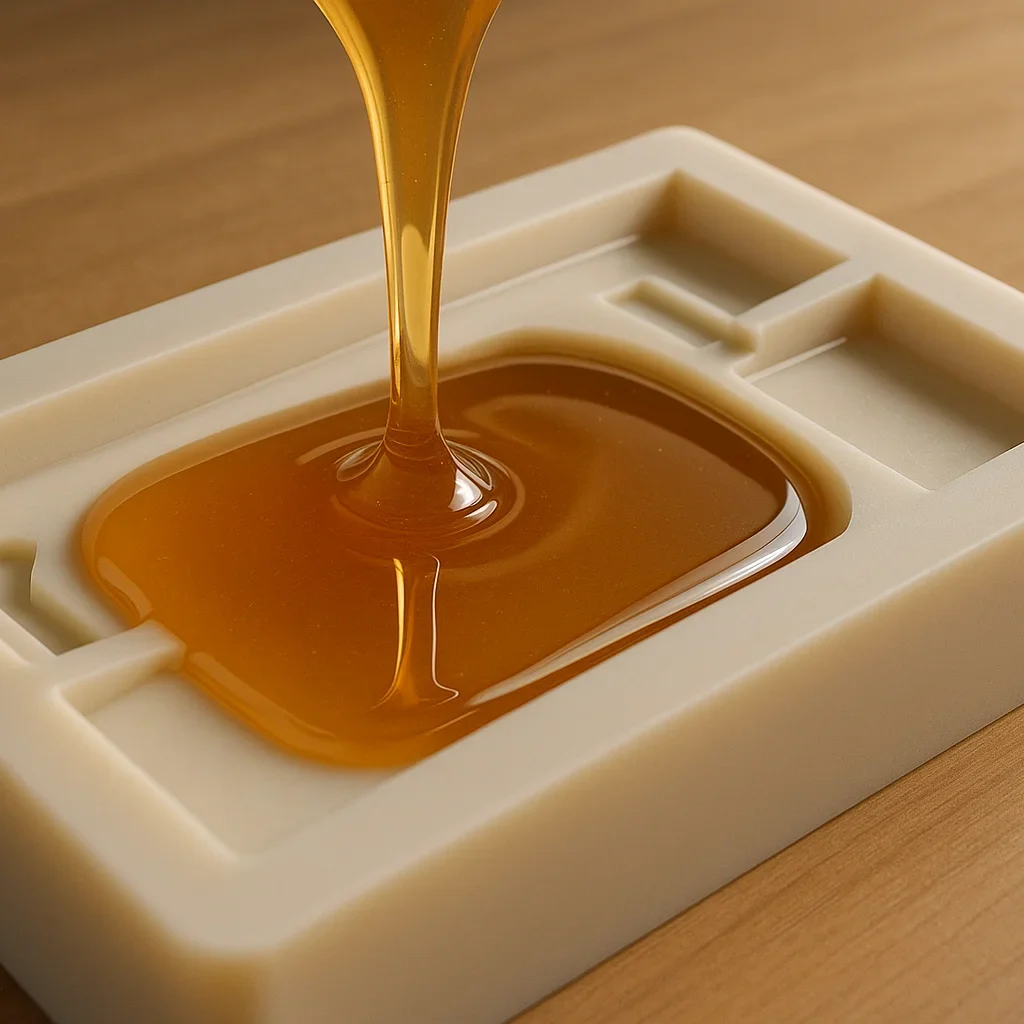

PU Casting
NEXAMS Leading the Way in PU Casting for Precision Components and Low-Volume Plastic Manufacturing
PU casting, also known as polyurethane casting, is a highly versatile plastic manufacturing process used to create durable, flexible, and precision-engineered components. At NEXAMS, we work alongside trusted Vendors and reliable Suppliers to provide industries with Support that ensures every PU cast part meets tight tolerances and complex geometries. Our decision to collaborate with local and nearby Manufacturers allows us to deliver human-centered solutions through efficient, low- to medium-volume production runs guided by ethical practices.
The process begins with creating a master pattern, often via CNC machining or 3D printing, followed by silicone mold production. Liquid polyurethane resin is poured into the mold, cured, and post-processed. Our Support teams help Suppliers and Vendors optimize these workflows. By integrating CNC machining with PU casting, we give nearby Manufacturers a cost-effective path to achieve injection-molding-quality parts without the investment in metal tooling. This ethical approach to engineering empowers local businesses with agile manufacturing capabilities.
Whether you’re exploring vacuum casting for prototyping or transitioning to production with PU casting low pressure casting, NEXAMS and our extended network of Suppliers and Vendors provide consistency, quality, and thoughtful Support. We work closely with nearby fabrication teams to ensure timely delivery and ethical communication throughout the entire PU casting manufacturing process.
Benefits of Technology
Highly suitable for low- and medium-volume plastic manufacturing, PU casting enables local Manufacturers and nearby Vendors to deliver quality with limited infrastructure while receiving continued Supplier Support.
Ideal for rapid manufacturing and functional prototyping, especially when nearby Vendors and local Suppliers collaborate through ethical processes guided by Support-oriented Manufacturers.
Achieves intricate details and smooth surface finishes using vacuum casting, coordinated by Vendors and Suppliers with guidance from local Support professionals and trusted Manufacturers.
Allows for fast curing and efficient PU casting low pressure casting operations supported by nearby manufacturing facilities and regional Suppliers who rely on strong Vendor partnerships.
Supports rapid tooling without the need for complex metal molds, making it a reliable option for ethical Suppliers, responsive Support teams, and resource-conscious local Manufacturers.
Enables precise tolerances through integrated CNC machining processes handled by nearby Vendors and supported by Manufacturers with expertise in PU casting applications.
Offers diverse mechanical properties via PU casting manufacturing process variants trusted by local and nearby Suppliers, tailored by ethical Vendors, and maintained with human-focused Support.
Reduces time-to-market with efficient PU casting machining process assisted by Vendor insights, Supplier logistics, and local Manufacturer Support to serve customers better and faster.
Cost-effective alternative to traditional injection molding, widely chosen by small-batch Vendors, regional Suppliers, and local Manufacturers looking for scalable and supportive solutions.
Environmentally friendlier resins with low VOC options are promoted by ethical Suppliers, nearby Vendors, and local Support teams prioritizing sustainability in plastic manufacturing.
Industrial Application and Use Cases
Automotive: PU casting is used to manufacture bushings, gaskets, oil pans, and protective housings with abrasion resistance, delivered with the help of local Vendors, supported by nearby Suppliers and regional Manufacturers who understand automotive-grade tolerances.
Medical Devices: Custom medical-grade parts created using the PU casting machining process and distributed by Suppliers, with ethical input from local Manufacturers and Support from certified Vendors to ensure safety and compliance.
Consumer Electronics: Durable enclosures and button panels made using vacuum casting and PU casting manufacturing process, supported by nearby Vendors and regional Suppliers for rapid, ethical fulfillment.
Footwear: Insoles, midsoles, and PU components produced through low pressure casting by Vendors and Suppliers working with local Manufacturers who rely on functional Support for lightweight, durable solutions.
Furniture & Home Goods: Seat cushions, foam panels, and aesthetic covers formed via low-volume plastic manufacturing, handled by nearby Vendors, quality-assured by Suppliers, and delivered by ethical Manufacturers.
Industrial Equipment: Seals, wheels, and dampening parts fabricated using CNC machining and PU casting with strong Supplier and Vendor coordination, supported by local teams that prioritize durable Support.
Defense and Aerospace: Lightweight, strong parts built via vacuum casting and rapid tooling techniques managed by regional Suppliers and certified Vendors, supported by local Manufacturers with compliance-ready systems.
Material Used in Technology
Polyurethane Resins: Available in rigid, flexible, elastomeric, and foam forms, these are supplied by trusted Suppliers, processed by Vendors, and supported by local Manufacturers for tailored product output.
Silicone Molds: Used in vacuum casting for flexibility across diverse geometries. These molds are sourced by Vendors and local Suppliers working under the guidance of Support-focused Manufacturers.
Filled Urethanes: Added stiffness and thermal resistance provided by these materials come from nearby Suppliers and are fine-tuned by Vendors to meet engineering-grade specs with Manufacturer Support.
Biocompatible Resins: These safe materials are trusted by medical Vendors, validated by Suppliers, and guided by local Manufacturer Support for ethical medical applications.
Transparent Grades: Selected by Vendors and recommended by Suppliers for lighting and aesthetic purposes, with assistance from Support teams based in local operations.
Pigmented Resins: Colored resin options used in branding applications are provided by Suppliers, formulated by Vendors, and aligned with nearby Manufacturer production processes.
High-Density Resins: Used in high-load components, this material is optimized by Suppliers, molded by Vendors, and quality-checked by local Support and Manufacturer teams.
How Costing Works
PU casting is among the most cost-effective plastic manufacturing methods for low-volume production. Local Vendors and ethical Suppliers support this process by eliminating the need for expensive metal tooling. Our nearby Manufacturers and Support teams streamline setup time and logistics.
Costs depend on part complexity, batch volume, and the PU casting manufacturing process chosen. With insights from Suppliers and logistical Support from Vendors, local Manufacturers can deliver quality without overextending budgets.
Vacuum casting suits prototypes with lower tooling costs, while PU casting low pressure casting fits consistent small-batch production, both handled by nearby Vendors and local Supplier Support specialists who guide pricing ethically.
Integrating CNC machining for precise finishes or tight tolerances ensures that cost per part remains fair. This integration is supported by decision-making Vendors, responsive Suppliers, and nearby Support teams working in unison with Manufacturers.
Alternative Technical Suggestion
Injection Molding: Preferred for high-volume production post-design finalization. Often recommended by Suppliers, prepared by Vendors, and supported by nearby Manufacturers when scale becomes a factor.
CNC Machining: Used to create master patterns or post-process parts. Local Vendors collaborate with Suppliers to deliver parts that meet customer expectations under ethical Manufacturer oversight and Support.
3D Printing (SLA, SLS): Useful for prototyping. Suppliers and Vendors often use this early on before transitioning into PU casting. Support teams help make the transition seamless with local Manufacturer involvement.
Vacuum Casting: Core to the PU casting machining process, ideal for fine details and trusted by nearby Vendors and Suppliers for functional testing with Support from production-ready Manufacturers.
PU Casting Low Pressure Casting: Low stress, high dimensional accuracy parts delivered by ethical Vendors, reviewed by trusted Suppliers, and shaped by local Support-oriented Manufacturers.
Compression Molding: Suitable for larger PU parts. Vendors may recommend it when part design allows, working with nearby Suppliers and Manufacturers with guidance from technical Support teams.
Rapid Tooling: Used to accelerate mold creation. Support-driven Vendors and agile Suppliers help Manufacturers reduce lead times in local and nearby operations.
FAQs
Q: What is PU casting?
A: PU casting is a plastic manufacturing process where liquid polyurethane resin is poured into silicone molds to create flexible or rigid parts. Vendors and Suppliers prefer this method for low-volume production with Support from local Manufacturers.
Q: How does PU casting compare to injection molding?
A: PU casting avoids high tooling costs and supports faster development. Vendors and Suppliers recommend it for prototypes, with Manufacturers and Support teams offering local guidance on material selection.
Q: What industries commonly use PU casting?
A: Automotive, medical, electronics, and aerospace. Local Vendors and nearby Suppliers work with Manufacturers who provide consistent Support throughout development.
Q: Can PU casting produce transparent or colored parts?
A: Yes, with resin customization offered by Suppliers and Support from Vendors, your local Manufacturer can produce clear or pigmented parts for branding or visual applications.
Q: How many parts can be made with one silicone mold?
A: Typically 30–50 parts, depending on mold design and casting conditions. Nearby Vendors monitor mold health with Support from Suppliers and local Manufacturer planning.
Q: What finishing options are available?
A: Polishing, painting, CNC machining, and more. Vendors and Suppliers collaborate with Support teams to deliver high-quality finishing from nearby Manufacturer shops.
Q: How does CNC machining fit into PU casting?
A: It’s used for master patterns and post-processing. Local Vendors handle machining with Supplier materials, supported by nearby Manufacturer teams for precise results.
Q: What is vacuum casting in PU casting?
A: It’s used to eliminate air bubbles and produce quality parts. Suppliers provide the materials, Vendors manage the operation, and local Support ensures quality assurance.
Q: What are the benefits of PU casting low pressure casting?
A: It minimizes internal stress and offers dimensional stability. Vendors and Suppliers choose this for critical parts, supported by ethical Manufacturers and local Support teams.
Q: What is PU Casting?
A: PU Casting is a plastic manufacturing method using polyurethane poured into silicone molds. Vendors, Suppliers, local Manufacturers, and Support teams work together to deliver low- to medium-volume solutions with human-like flexibility.
Q: How is PU Casting different from other technologies?
A: PU Casting is more cost-effective for small batches. With rapid tooling, vacuum casting, and CNC machining integrations, it allows Vendors, Suppliers, and nearby Support teams to meet diverse manufacturing needs ethically and efficiently.
A: By Sea: Asia: 15–20 days, Europe: 25–35 days, North America: 30–40 days, South America: 35–45 days, Middle East: 14–18 days, Africa: 20–28 days, Oceania: 22–30 days
By Air: Asia: 1–3 days, Europe: 3–5 days, North America: 4–6 days, South America: 5–7 days, Middle East: 1–2 days, Africa: 3–5 days, Oceania: 4–6 days
